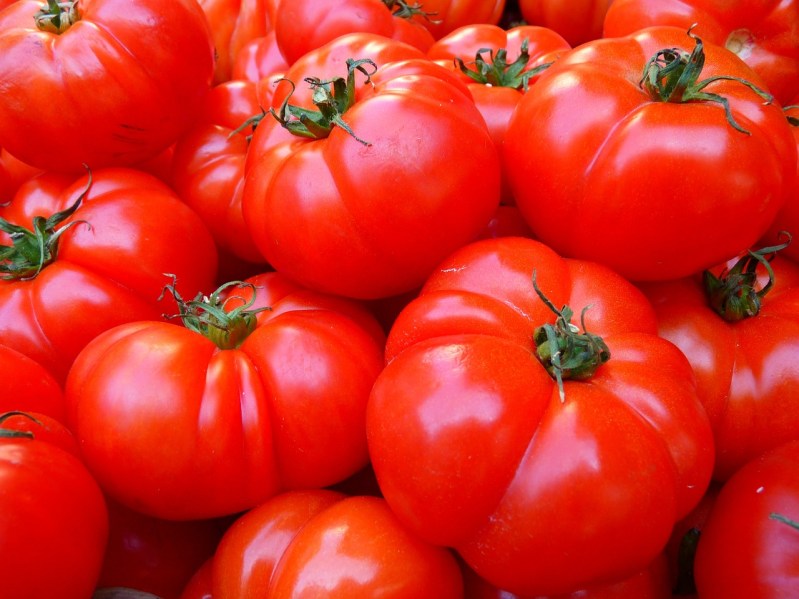As you explore a ketogenic diet and the foods you can eat and what adjustments you need to make as you start, you’re probably wondering about the everyday staples in your meals and whether they can keep their place in your diet. There’s no doubt that one of these familiar foods you want to know more about is the tomato.
Tomatoes are ever-present piece in many meals, whether as a garnish, a base for sauce and dips, or in salads, so you need to know are tomatoes keto and how you should implement them into this new diet. The answer regarding this healthy hallmark and its implications on your health just might be the answer you’re looking for.
What is the ketogenic diet?

The ketogenic diet is an eating plan designed so your body uses stored fat for energy rather than carbohydrates. You’ll achieve this by incorporating more healthy fats into your diet, like olive oil and fatty fish, and balancing this with the right amount of protein while limiting carb intake to 50 grams or less.
What makes a food keto-friendly?

You’ll know you’re eating keto-friendly foods if they are low in sugar and carbs. Your meal prep is likely to consist of more natural food sources, like nuts and seeds, as well as cocoa butter or almond flour. Note that you can still enjoy sweet treats like smoothies but with more keto-friendly ingredients, like coconut milk, vanilla extract, and nuts. You can keep salad dressing a keto-friendly option by making your own with lemon juice, herbs, and vinegar to bypass the sugars that are added to the average store-bought salad dressing.
Are tomatoes keto?

Luckily, tomatoes are a keto-friendly food and suitable for a ketogenic diet, as fiber and carbs only make up 5% of the tomato. In addition to the low carbohydrate content, another benefit of the tomato is that it is a low-calorie food.
Nutritional information of tomatoes

Turn your attention to tomatoes’ nutritional profile, and you’ll find that they are a low-calorie food that possesses macronutrients and minerals that will benefit your health.
1 cup of chopped tomatoes contains the following nutrients:
- Calories: 32.4
- Protein: 1.58 grams
- Fat: 0.36 grams
- Carbohydrates: 7 grams
- Fiber: 2.16 grams
- Sugar: 4.73 grams
What nutrients are tomatoes rich in?

Tomatoes have a rich nutritive makeup that benefits your body and total wellness. The vitamin C and vitamin A content drive the antioxidant abilities, along with flavonoids that combat infection and protect against diseases like heart disease. You’ll also find that tomatoes are rich in magnesium and calcium, as well as potassium, which help with electrolyte balance and maintaining hormone balance and sleep patterns.
Benefits of regularly including tomatoes in your diet

Upgraded heart health
Keep tomatoes handy during your meal prep, as this is a sure way to promote heart health. As previously mentioned, tomatoes possess antioxidative characteristics. Selenium is found in tomatoes, as well as lycopene, a carotenoid that works to stop oxidative damage. These components can protect your cells and your heart from the free radical damage that encourages coronary artery disease and other heart diseases.
Digestive support
Eating tomatoes may also benefit your digestive health. Just as lycopene protects against cell damage, it also works to alleviate inflammation, which is beneficial for your GI tract. The many polyphenols, like flavonoids, for example, that are found in this red beauty and have antioxidative abilities also promote good bacteria in the gut, and this balance keeps your system running smoothly.
Improved sleep
The tomato is a vegetable-like fruit that is a high-quality source of tryptophan, which has a positive impact on sleep. This essential amino acid must be obtained via diet and plays a role in sleep, mood, and behavioral patterns. Keep tomatoes and other tryptophan sources in your diet, and your production of serotonin and melatonin will improve, ultimately benefiting your sleep.
Frequently asked questions

How much tomato can I eat on keto?
As previously mentioned, carbs only make up about 5% of a tomato, so this is a lower-carb option that you can include in your keto diet with creativity. Try homemade tomato sauces if you can, and have tomato slices on toast with avocado and pepper as a snack.
What vegetables are not keto?
Starchy vegetables are not keto. This means white potatoes, sweet potatoes, and beets aren’t permitted. Corn and peas are other starches, like parsnips and carrots, that have a greater carbohydrate content that makes them less friendly to the ketogenic diet.
Instead, turn your attention to the more keto-friendly veggies like Brussels sprouts, celery, and cauliflower. Most of your leafy greens and cruciferous vegetables are allowed, along with some other colorful goodies like bell peppers and eggplant.
Why are cherry tomatoes not keto?
Cherry tomatoes are not considered a keto-friendly food because of their nutritional composition compared to other tomato varieties. Cherry tomatoes possess more carbs and have greater sugar content than some other tomato variants, like the grape tomato. If you were to have cherry tomatoes in your keto diet, it would take great attention to detail and accurate carb counting to be certain the cherry tomato fits within your total carb count.
This would also mean considering the way cherry tomatoes have been processed for preservation. To have a longer shelf life, the already sweet cherry tomato may undergo processing that results in greater sugar content. This would need to be avoided on the keto diet, as well as if you need to adhere to a low-carb diet or a more blood glucose-friendly meal plan.




